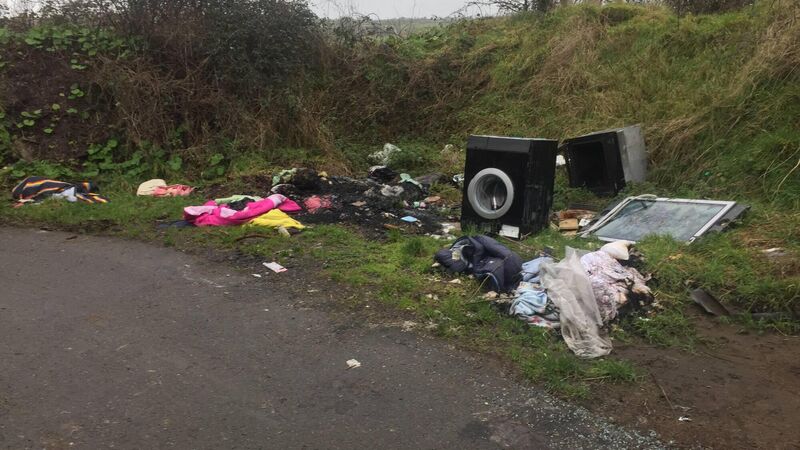GDPR has made it harder to catch illegal dumpers, Eamon Ryan says

Illegal dumping at Nash's Boreen on Cork's northside.
Protecting the rights of individual's privacy and data has led to difficulties in tackling the scourge of illegal dumping, with CCTV proving a real stumbling block, Environment Minister Eamon Ryan has said.
Mr Ryan was speaking in response to senator Mark Wall, who claimed that illegal dumping could be costing the Republic's 31 local authorities a combined €90m per year to tackle.










